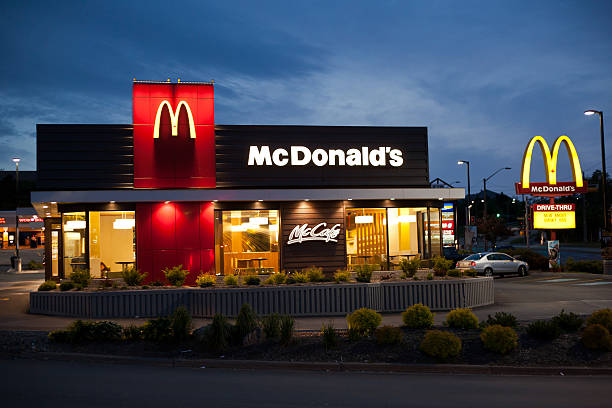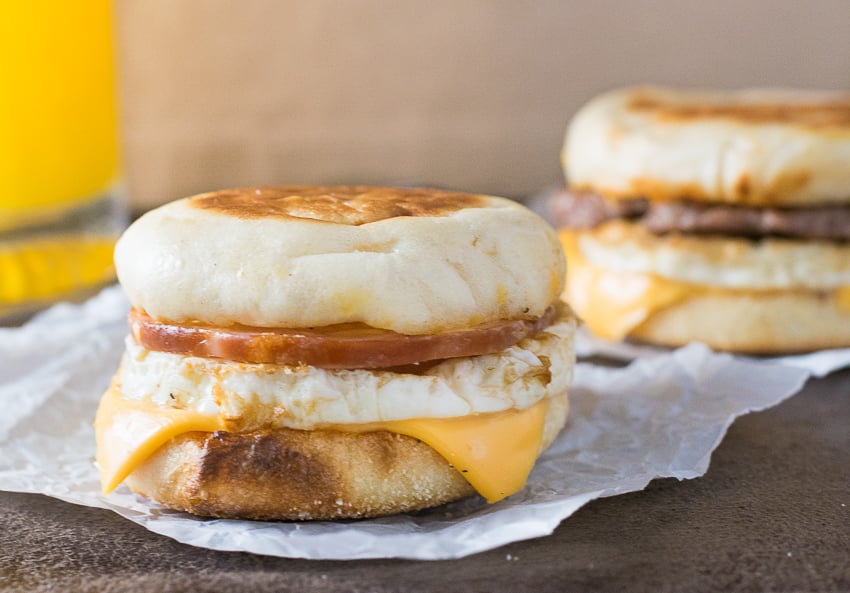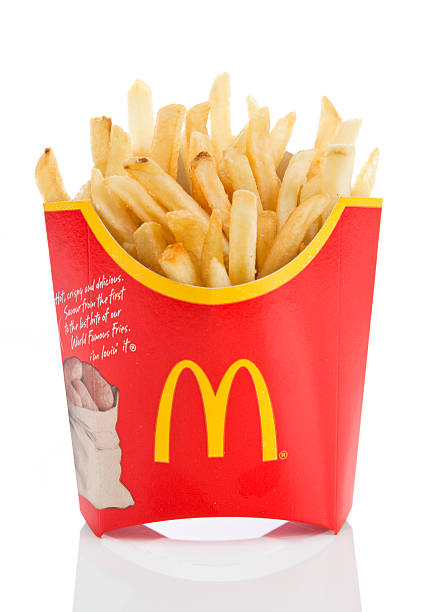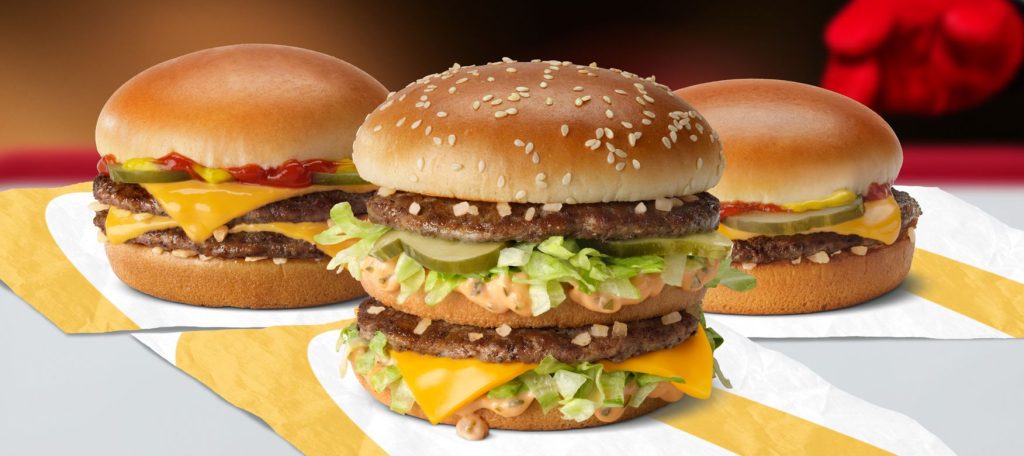
In the past, consumers have called on McDonald’s to make their ingredients transparent to the general public. And they have. In fact, back in 2014 they launched a transparency campaign and created a new section in their website called “Our Food, Your Questions” where they answer their customers questions. At the moment, there are 219 questions listed here such as:
- Does McDonald’s use Freshly Cracked Eggs?
- Is McDonald’s orange juice pasteurized?
- Does McDonald’s recycle?
- Is McCafé® coffee sustainably sourced?
- Why are McDonald’s fries so good?
How McDonald’s Ingredient Transparency Works
As the leading fast food chain in the world, McDonald’s is often the first one in the hot seat when people start to question how healthy (or unhealthy) their menu is, what ingredients are used, what sourcing practices they implement, and so on.
McDonald’s understands this all too well which is why, in addition to the “Our Food, Your Questions” campaign, they also provide the list of ingredients, allergen information and nutrition information on each of their menu items.
To find these details, simply search for a specific menu item here and then scroll down to the lower portion of the McDonald’s menu item page. There you will see the Nutrition Summary and Allergen Information, as well as the Nutrition Calculator.

McDonald’s Food Philosophy
Here’s what McDonald’s stated on their website about their food philosophy:
“At McDonald’s, we’re passionate about our food. We take great care that what we serve every day is safe, great quality, offers choice and is produced in a responsible way. That means we use 100% pure beef patties seasoned with just a pinch of salt and pepper. It means our Egg McMuffin® is made with a freshly cracked egg. And, in the U.S., our Filet-O-Fish® sandwich is made with whitefish sourced from sustainably managed wild-caught fisheries. It means our Chicken McNuggets® are made with white meat chicken. Simply put, it means we’re committed to always evolving what matters to you.”
McDonald’s Redefines Health and Aims for Sustainability
McDonald’s is aiming for a menu that is free from artificial flavors, colors and preservatives. Each product, however, presents its own set of challenges, as explained by Amy Wilcox, the director of quality systems and supply chain management for McDonald’s USA.
Wilcox highlighted that the term “clean label” couldn’t be universally applied due to varying interpretations. McDonald’s had to establish its own definition for its suppliers, operators, and customers, ensuring that all parties were aligned.
In September 2019, McDonald’s announced the removal of artificial preservatives from its “classic” burger lineup in the U.S. The chain also revealed at the time that one-third of its eggs now cage-free. This year, their eggs are 100% cage free.
Currently, McDonald’s chicken nuggets, American cheese, and burgers meet their sustainability criteria. However, Wilcox noted that finding a suitable pickle was a challenge. Unable to source one that fit their definition, McDonald’s chose to proceed with the existing product and transparently marked it with an asterisk on the menu.

McDonald’s Ingredient Transparency Questions & Answers
McDonald’s has been shedding new light on its [previously] heavily-criticized food sourcing and processing practices. In the face of growing consumer demand for ingredient transparency, the chain launched several marketing campaigns in the US, Canada, and Australia to answer consumer-submitted questions which I’ll list below, along with their answers, of course:
Are McDonald’s Eggs Organic or Free-Range?
McDonald’s confirms that as of 2024, they use 100% cage-free eggs in the United States and was able to purchase 2 billion eggs in 2023 alone.
Why Do McDonald’s Chicken Nuggets Contain an “Anti-Foaming” Agent?
McDonald’s USA uses a small amount of dimethylpolysiloxane in their frying oil to prevent foaming and splattering. This ingredient is also found in non-food products like putty and cosmetics, leading to some misconceptions about its presence in food.
Is McDonald’s Cheese 1% Away from Being Plastic?
A McDonald’s crew member in Sydney, Australia, debunks the myth about their cheese being close to plastic, stating that the primary ingredient is natural cheese. Other ingredients include milk solids, butter, and emulsifiers, which improve the texture and color of processed foods.

Are McDonald’s French Fries Made from 100% Potatoes?
McDonald’s French fries are made from whole potatoes that are peeled, cut, and partially fried before being shipped to restaurants. The potatoes are blanched to remove natural sugars and treated with a dextrose solution for an even coating. An additional ingredient is used to prevent graying. After moisture is removed, the strips are fried, frozen, and packaged. The fries are cooked in a blend of vegetable oils and other ingredients to maintain color and flavor.

Does McDonald’s USA Import Beef from Other Countries?
Most of the beef used in McDonald’s U.S. restaurants is sourced domestically, though a small portion is imported from Australia and New Zealand to supplement U.S. supplies.
Are McDonald’s Eggs Cooked Fresh in the Restaurant?
Some eggs at McDonald’s are cooked fresh, while others are pre-made. For example, the eggs for the Egg McMuffin are freshly cracked and cooked on-site. Scrambled eggs and egg whites are also cooked in the restaurants but use liquid eggs. Folded eggs and those in the sausage burrito are pre-made in factories, flash frozen, and then warmed before serving.
Explore McDonald’s breakfast menu!
What Parts of the Chicken Does McDonald’s Use?
McDonald’s uses specific parts of the chicken, such as thighs, breasts, tenders, and skin for flavoring, rather than whole chickens in McDonald’s Meal.

Are McDonald’s Burgers Fresh or Frozen?
McDonald’s USA states that their beef is ground, shaped into patties, and then flash frozen to preserve their quality and flavor until cooked in the restaurants.
Does McDonald’s Meat Contain Added Hormones?
In the U.S., McDonald’s chicken does not contain added hormones, as federal law prohibits their use in poultry. However, beef can contain FDA-approved growth promotants, including hormones, commonly used in the cattle industry.
Is McDonald’s Beef Grass Fed?
McDonald’s cannot guarantee that all their beef is grass-fed. Generally, cattle used for their beef graze on grass during the initial part of their lives and are then finished on a balanced diet that may include grains, grasses, and minerals when they move to feedlots.